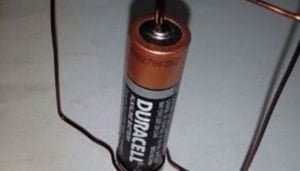What is adolescence?
By Pranjal Gautam
Adolescence is one of the most important phases for both male and female as it led to the development of sexual characteristics and convert a child to a teen and later a teen to an adult. Adolescence is the time when we have to ensure various things and these will bring the best in everyone, for example, having a well-balanced diet, taking adequate sleep etc.
Adolescence: It refers to the phase of development or growth in humans when the body undergoes physical and physiological changes to attain reproductive maturity. Adolescence begins at the age of 11 or 12 years and lasts till 18 to 19 years as this phase covers the teenage years of an individual and hence called the ‘Teens’/’Teenage’. While writing about adolescence I thought what is puberty and is it same as adolescence or different. Puberty is defined as the age when an individual attains reproductive attributes i.e., it marks the onset of ability to reproduce by an individual. In boys’ puberty is from 11 or 12 years to 13 or 14 years. While in girls the puberty is from 9 or 10 years till 12 years of age. Puberty is attaining reproductive ability but no reproductive maturity.
This is a brief introduction about adolescence and puberty but there is various subcomponent in this topic.
Adolescence is related to hormones and secretion but from where do these secretion and hormones come. These hormones and secretion come from glands and there are two types of glands in humans.
| Endocrine glands | Exocrine Glands |
| These are those glands that pour their secretion directly into the bloodstream and don’t have a duct or a tube. | These are those glands that pour their secretion using tubes or ducts. |
| Their secretion reaches to target side with the help of the bloodstream. | Secretion reaches target sides directly through tubes or ducts. |
| E.g., Pituitary, Thyroid etc. | E.g., Sebaceous glands, tear glands etc. |
There are specific glands that have a specific function and plays a crucial role in one’s life.
| Gland | Location | Hormone | Function |
| Pituitary | Brain | Releasing factor (RF) and Stimulating hormone (SH). Growth hormone (GW) | RF/SH controls the release of all hormones from all other endocrine glands of the body. Therefore, this gland is also called the Master gland. It controls the height of the person. |
| Thyroid | Neck/Throat | Thyroxine | It controls the various process of digestion and assimilation leading to the proper development of a person. Thereby it controls the metabolism of an individual. It is needed for brain development till the age of 5. |
| Pancreas | Junction of the stomach and small intestine | Insulin | It helps in maintaining the blood glucose level of each cell It converts excessive glucose into its stored form called glycogen in the muscles and liver of the body. |
| Adrenals | Above each kidney | Corticoids Adrenaline/ Epinephrine | It helps in maintaining Salt balance in the body. It helps to cope when we have to face the situation of stress. Hence it is called Fight or flight hormone. |
| Ovaries (In females) | In the pelvic region | Oestrogen | Helps in maturing and releasing Ovum (Female gamete) Responsible for the appearance of secondary sexual characters in females. |
| Testes (In males) | In the scrotal sac | Testosterone | Helps in maturing and releasing Sperms (male gamete) Responsible for the appearance of secondary sexual characters in males. |
There are few diseases caused by the endocrine system
Drawfism- Due to less secretion of Growth hormone, a person’s height is short as per the age.
Gigantism- Due to more secretion of growth hormone, a person’s height is too much as per the age
Goitre-: Due to the deficiency of thyroxine production from the thyroid gland, there is swelling in the neck, also metabolism slows down and this refers to the goitre.
Diabetes mellitus: It is the disease caused due to the insufficient secretion of insulin leading to the increase in blood glucose level which affects blood flow in general in the body.
One of the most important topics of Adolescence and puberty is REPRODUCTIVE HEALTH
It is defined as maintaining physical, mental and physiological health during adolescence to ensure the healthy reproductive ability.
This can be achieved in the following ways
Proper Nutrition-
This can be achieved in the following manner
Balanced diet- With more protein and Iron as this is a growth phase. Proteins help in muscle build-up while iron improves the oxygen carrying capacity of blood vessels.
Proper Personal Hygiene :
•There is increased secretion of oil and sweat glands during adolescence and puberty due to hormonal changes in the body.
•This keeps the skin moist which may cause microbes present in the atmosphere to remain and accumulate on the skin surface leading to a skin infection.
•A form of skin infection caused by bacteria is ACNEcommonly seen in adolescents (teenagers). Acne is caused due to overactivity of oil and sweat glands.
•Proper and regular bathing and frequent cleaning of skin surface prevents skin infection.
Proper physical exercise :
•As adolescence is a growth period due to hormonal changes, exercising is a good way of stimulating cells.
•Walking and light exercise helps in healthy growth without accumulation of fat cell at a specific location in the body.
•Outdoor exercises in fresh air such as playing games helps in overall growth and development. It also keeps the body fit and healthy.
Avoid Unhealthy habits :
•Eating junk food like chips, packed food or tinned snacks.
•This is because it has high fat and sodium content leading to an increase in body weight rather than healthy development.
•Though tasty these foods should not replace regular meals as they do not provide adequate nutritional value.
Avoiding chemical stimulations in the form of drugs:
•Drugs affect mental stability and may cause permanent physical damage.
•Sharing of drugs within a group may even lead to a various viral
AIDS: Acquired Immuno Deficiency Syndrome.HIV: Human Immuno Deficiency Virus. (causative organism)
Causes of AIDS:
Use of Contaminated needles or syringes.
Blood Transfusion.
Unprotected sex without the use of physical barriers.
From an affected mother to an unborn child.
Effects of AIDS:
The virus destroys the immune system of the infected person leading to multiple infections which may be life-threatening.



